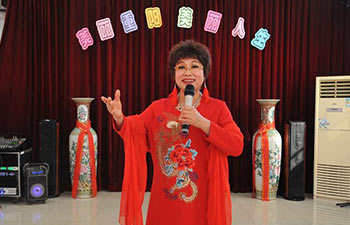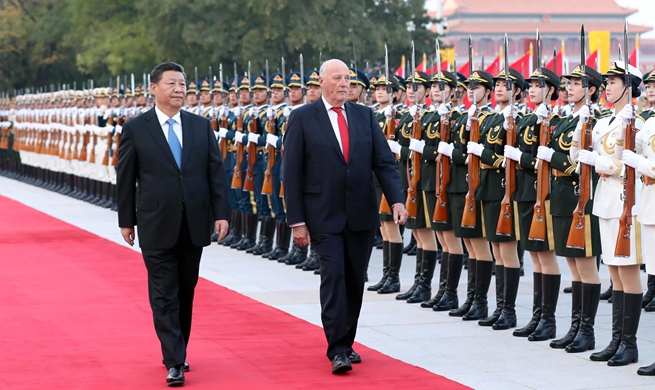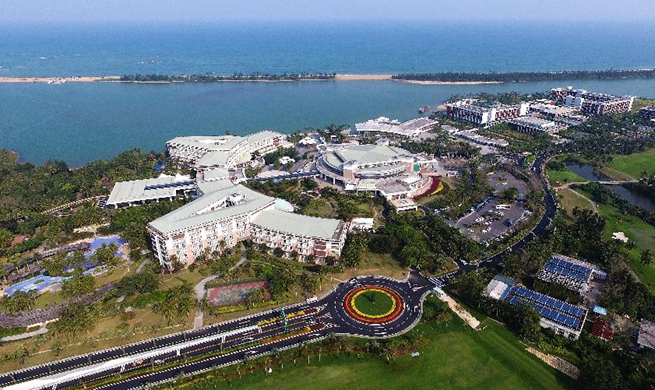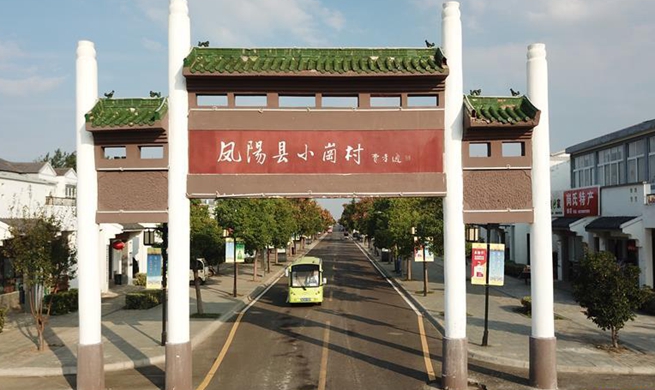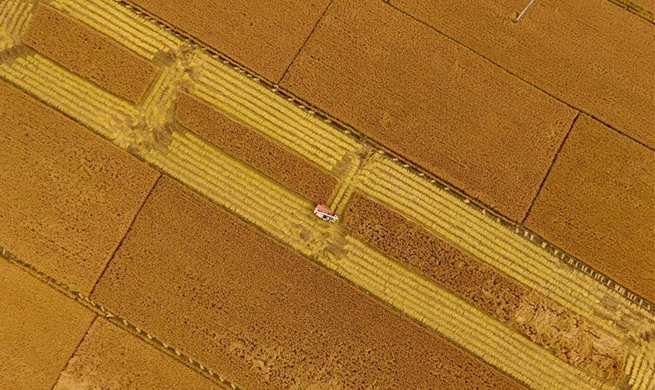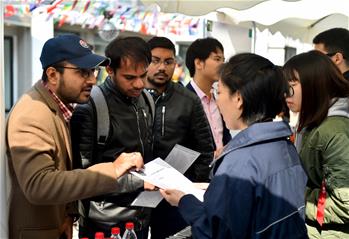JUBA, Oct. 16 (Xinhua) -- South Sudan said Tuesday it will seek to adopt modern technology to transform its agriculture to beat hunger by 2030.
Onyoti Adigo Nyikuac, minister of agriculture and food security, said the government is ready to support the agriculture sector by investing in irrigation to move away from rain-fed agriculture that risks food insecurity due to climate change.
"This conflict has severely affected our agricultural sector despite our country being endowed with fertile land, adequate rainfall and water," Onyoti said in Juba on the occasion of the World Food Day. "Our policy needs to change from rain-fed agriculture to irrigation. We need to provide support for farmers to move from subsistence to commercial farming."
A recent Food Security Phase Classification (IPC) report about levels of food insecurity indicates that more than half the population of South Sudan, or 6.1 million people, face severe food shortages as hunger continues to plague the country.
Nyikuac thanked World Food Program and UNICEF for helping South Sudan, but discourged "supplying a person with free food all the time."
"We accept (that) for the small children, disabled, elderly people but not people like (able-bodied) us," he said. "We have to cooperate in order to give food for work."
"We have to discourage free food because it makes our people lazy," Nyikuac said.
Oil and mining have dominated South Sudan's economy in terms of revenue, contributing to 98 percent of the budget since the country's independence in 2011.
South Sudan experienced famine conditions in early 2017 before humanitarian agencies embarked on massive efforts to help millions in need. UN agencies warn that hunger remains in some parts of the country due to intermittent fighting between government troops and rebels despite the signing of a fresh peace deal in late August.
Simon Cammelbeek, WFP deputy country director, said although food security has improved slightly with the harvest in September, continuing conflict and economic collapse have destroyed lives and livelihoods, leaving millions of people in need of humanitarian assistance to survive.
"We are distributing life-saving emergency food supplies, providing food in return for work to construct and rehabilitate community assets, school meals, and special products for the prevention and treatment of malnutrition in children and pregnant and nursing women," he said.
The WFP is also buying grains directly from small-holder farmers through a network of aggregation centers. The practise allows farmers to market their crops and get paid for it, hence promptly generating much needed income while stimulating future production, Cammelbeek said.
For South Sudan to fight hunger and malnutrition in all its forms by 2030, Cammelbeek said, it is imperative to accelerate and scale up actions to strengthen the resilience and restore people's livelihoods.
"We welcome the latest peace deal and hope... that it will result in actual changes on the ground," he said.
"After five years of civil war and decades of fighting before independence, the people of South Sudan, especially the displaced and refugees, need peace to be able to return home and rebuild their lives," Cammelbeek said.

